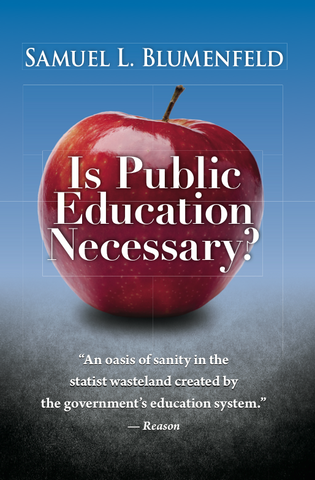Public Schools are Five-Days-a-Week ‘Secular Schools’
Recently Louisiana got into the Ten Commandments debate and a judge stepped in to halt a new law that would require public schools to display the Ten Commandments in their classrooms.
U.S. District Judge John W. deGravelles issued a lengthy ruling and order on Tuesday in the case of Darcy Roake et al. v. Cade Brumley et al. At issue is Louisiana’s House Bill 71, signed into law in June, which would require Decalogue displays in public school classrooms. The law was slated to take effect on New Year’s Day.
The judge’s decision rests on the following argument and the standard objections of organizations like the ACLU and Americans United for Separation of Church and State:
“In sum, the historical evidence showed that the instances of using the Ten Commandments in public schools were too ‘scattered’ to amount to ‘convincing evidence that it was common’ at the time of the Founding or incorporation of the First Amendment to utilize the Decalogue in public-school education.”
The real issue is whether our national government should control education. Heather L. Weaver, senior staff attorney for the ACLU’s Program on Freedom of Religion and Belief, responded to the ruling.
Public schools are not Sunday schools, and today’s decision ensures that our clients’ classrooms will remain spaces where all students, regardless of their faith, feel welcomed.
There’s no neutrality. In effect, public schools are five-days-a-week Secular schools controlled by the government and funded through theft. The public (government) schools teach their own view of morality. The religion of secularism reigns supreme. Charles Francis Potter, a Unitarian minister, stated as much in 1930. He signed the first Humanist Manifesto: “Education is thus a most powerful ally of Humanism, and every American public school is a school of Humanism. What can the theistic Sunday-school, meeting for an hour once a week, and teaching only a fraction of the children, do to stem the tide of a five-day program of humanistic teaching?”[1]

What happened over the course of the last two and a half centuries? Why did Americans surrender the educational freedom that produced such widespread academic excellence to embrace a state of functional illiteracy under complete government control? In his seminal book Is Public Education Necessary?, Samuel Blumenfeld unpacks two centuries of source material to present an accurate history of the religious and philosophical transformations that gave birth to the educational statism controlling America’s children today.
Atheist John J. Dunphy denounced the Christian worldview but must borrow moral capital from the Christian worldview to maintain the “Christian ideal of ‘love thy neighbor.’” As an atheist, he wants to define what he means by “loving thy neighbor,” and he wants stolen money and the power of government control to enforce it.
The battle for humankind’s future must be waged and won in the public school classrooms by teachers who correctly perceive their role as the proselytizers of a new faith. Such teachers will be utilizing a classroom instead of a pulpit to convey humanist values in whatever subject they teach, regardless of the education level. Classrooms, must and will become an arena of conflict between the old and the new—the rotting corpse of Christianity and the new faith of humanism, resplendent in its promise of a world in which the never-realized Christian ideal of “love thy neighbor” will finally be achieved.[2]
Atheists don’t have a legitimate basis for establishing what it means to love. Love cannot be found within the matter-only worldview of atheism. Evolutionary atheism is not built on “love thy neighbor.” The supposed evolution of the species came about through rape and other forms of violence toward neighbors. Biologist Randy Thornhill and Craig T. Palmer argue in their book A Natural History of Rape that evolutionary principles explain rape as a “genetically developed strategy sustained over generations of human life because it is a kind of sexual selection—a successful reproductive strategy.”[3]
They go on to claim that even though rape can be explained genetically in evolutionary terms, this does not make the behavior is morally justified. Of course, given Darwinian assumptions, there is no way to condemn rape on moral grounds. The same could be said for homosexual behavior, and everything else. If we are truly the products of evolution, then there can be no moral judgments about anything.
The evolutionary theory of origins is a secular religion that does not let any competing gods to oppose it. It’s blasphemous to question what is no longer considered a theory. The late Ernst Mayr (1904-2005) was one of the 20th century’s most leading evolutionists. He stated, “No educated person any longer questions the validity of the so-called theory of evolution, which we know now to be a simple fact.”[4] Dr. Michael Ruse is even more direct about evolution’s religious assumptions: “Evolution is promoted by its practitioners as more than mere science. Evolution is promulgated as an ideology, a secular religion—a full-fledged alternative to Christianity, with meaning and morality…. Evolution is a religion. This was true of evolution in the beginning, and it is true of evolution still today.”[5] When you assess the characteristics of religion, evolution checks all the boxes.
For example, two leading evolutionary biologists have described modern neo-Darwinism as “part of an evolutionary dogma accepted by most of us as part of our training.”[6] A prominent British biologist, a Fellow of the Royal Society, in the Introduction to the 1971 edition of Darwin’s Origin of Species, said that “belief in the theory of evolution” was “exactly parallel to belief in special creation,” with evolution merely “a satisfactory faith on which to base our interpretation of nature.”[7] G.H. Harper calls it a “metaphysical belief.”[8] … The British physicist, H.S. Lipson, has reached the following conclusion. “In fact, evolution became in a sense a scientific religion; almost all scientists have accepted it and many are prepared to ‘bend their observations to fit in with it.”[9] (Source)
A consistent secular/materialistic/evolutionary religion has consequences. “[S]ome evolution opponents argue that Darwin’s ideas have proven socially and politically dangerous. In particular, they say, the notion that more resilient animals survive and thrive (‘survival of the fittest’) has been used by social thinkers, dictators and others to justify heinous crimes, from forced sterilization to mass genocide.” (Source)
William Provine (1942-2015), who served as the Charles A. Alexander Professor of Biological Sciences at the Department of Ecology and Evolutionary Biology at Cornell University, put the final nail in the cultural coffin with this statement.
There are no gods, no purposes, no goal-directed forces of any kind. There is no life after death. When I die, I am absolutely certain that I am going to be dead. That’s the end for me. There is no ultimate foundation for ethics, no ultimate meaning to life, and no free will for humans, either.[10]
These and other quotations from atheists are found in my book Why It Might Be Ok to Eat Your Neighbor.

The most damning assessment of a matter-only cosmos devoid of a Creator is that we got to this place in our evolutionary history by acts of violence whereby the strong conquered the weak with no one to support or condemn them. Why It Might Be OK to Eat Your Neighbor repeatedly raises the issue of accounting for the conscience, good and evil, and loving our neighbor. It’s shocking to read what atheists say about a cosmos devoid of meaning and morality.
There are no moral absolutes given the operating assumptions of materialists who advocate a something from nothing origin of life and survival of the fittest religion.
God died in the nineteenth century and Nietzsche danced on his grave. The foundation of the external moral law was destroyed and, in its place, was a vacuum, soon gleefully filled by the narcotics of Nazism and Communism. It may not be possible to say that the death of God led directly to the death ovens; but equally, nobody can ignore the fact that the cruelest era in history was also the first to deny the existence of an external moral force.[11]
If this is true, “can we stop the long nightmare of the twentieth century from spilling over into the twenty-first?” We cannot live within the fluid boundaries of legal and moral relativism. There must be a definitive and final moral legal standard of appeal to justify moral decisions at the personal and governmental levels. If not, then one judge’s opinion is as good (or as bad) as another.
The Ten Commandments has been a fixed moral summary standard in America since its founding. As Nightline host Ted Koppel stated in a 1987 commencement address at Duke University, “What Moses brought down from Mt. Sinai were not the Ten Suggestions. They are commandments. Are, not were. The sheer brilliance of the Ten Commandments is that they codify in a handful of words acceptable human behavior, not just for then or now, but for all time. Language evolves. Power shifts from one nation to another. Messages are transmitted with the speed of light. Man erases one frontier after another. And yet we and our behavior and the commandments governing that behavior remain the same.”[12]
[1] Charles Francis Potter, Humanism: A New Religion (New York: Simon and Schuster, 1930), 128. Quoted in David A. Noebel, J.F. Baldwin, and Kevin Bywater, Clergy in the Classroom: The Religion of Secular Humanism (Manitou Springs, CO: Summit Press, 1995), vi.
[2] John J. Dunphy, “A Religion for a New Age,” The Humanist, 43:1 (January/February 1983), 26.
[3] Randy Thornhill, and Craig T. Palmer, A Natural History of Rape: Biological Bases of Sexual Coercion (Cambridge, MA: MIT Press, 2000).
[4] Ernst Mayr, “Darwin’s Influence on Modern Thought,” Scientific American (July 2000), 80, 83.
[5] Michael Ruse, “Saving Darwinism from the Darwinians,” National Post (May 13, 2000), B-3.
[6] Paul Ehrlich and L.C. Birch, Nature (April 22, 1967), 352.
[7] L. Harrison Matthews, “Introduction” to Origin of Species (London, J.M. Dent and Sons 1971), x.
[8] G.H. Harper, “Alternatives to Evolutionism,” School Science Review, 51 (September 1979), 26.
[9] H.S. Lipson, “A Physicist Looks at Evolution,” Physics Bulletin, 31 (1980).
[10] William B. Provine, Origins Research 16:1 (1994), 9.
[11] Bryan Appleyard, review of Jonathan Glover, Humanity: A Moral History of the Twentieth Century in The Sunday Times (December 1999). Quoted in Vaughan Roberts, God’s Big Design: Life as he Intends it to Be (Downers Grove, IL: InterVarsity Press, 2006), 27.
[12] Ted Koppel, The Last Word, Commencement Address at Duke University, Durham, North Carolina (May 10, 1987). Quoted in Robert H. Bork, The Tempting of America: The Political Seduction of the Law (New York: The Free Press, 1989), 164.
American Vision’s mission is to Restore America to its Biblical Foundation—from Genesis to Revelation. American Vision (AV) has been at the heart of worldview study since 1978, providing resources to exhort Christian families and individuals to live by a Biblically based worldview. Visit www.AmericanVision.org for more information, content and resources
Source: https://americanvision.org/posts/public-schools-are-five-days-a-week-secular-schools/
Anyone can join.
Anyone can contribute.
Anyone can become informed about their world.
"United We Stand" Click Here To Create Your Personal Citizen Journalist Account Today, Be Sure To Invite Your Friends.
Before It’s News® is a community of individuals who report on what’s going on around them, from all around the world. Anyone can join. Anyone can contribute. Anyone can become informed about their world. "United We Stand" Click Here To Create Your Personal Citizen Journalist Account Today, Be Sure To Invite Your Friends.
LION'S MANE PRODUCT
Try Our Lion’s Mane WHOLE MIND Nootropic Blend 60 Capsules
Mushrooms are having a moment. One fabulous fungus in particular, lion’s mane, may help improve memory, depression and anxiety symptoms. They are also an excellent source of nutrients that show promise as a therapy for dementia, and other neurodegenerative diseases. If you’re living with anxiety or depression, you may be curious about all the therapy options out there — including the natural ones.Our Lion’s Mane WHOLE MIND Nootropic Blend has been formulated to utilize the potency of Lion’s mane but also include the benefits of four other Highly Beneficial Mushrooms. Synergistically, they work together to Build your health through improving cognitive function and immunity regardless of your age. Our Nootropic not only improves your Cognitive Function and Activates your Immune System, but it benefits growth of Essential Gut Flora, further enhancing your Vitality.
Our Formula includes: Lion’s Mane Mushrooms which Increase Brain Power through nerve growth, lessen anxiety, reduce depression, and improve concentration. Its an excellent adaptogen, promotes sleep and improves immunity. Shiitake Mushrooms which Fight cancer cells and infectious disease, boost the immune system, promotes brain function, and serves as a source of B vitamins. Maitake Mushrooms which regulate blood sugar levels of diabetics, reduce hypertension and boosts the immune system. Reishi Mushrooms which Fight inflammation, liver disease, fatigue, tumor growth and cancer. They Improve skin disorders and soothes digestive problems, stomach ulcers and leaky gut syndrome. Chaga Mushrooms which have anti-aging effects, boost immune function, improve stamina and athletic performance, even act as a natural aphrodisiac, fighting diabetes and improving liver function. Try Our Lion’s Mane WHOLE MIND Nootropic Blend 60 Capsules Today. Be 100% Satisfied or Receive a Full Money Back Guarantee. Order Yours Today by Following This Link.






